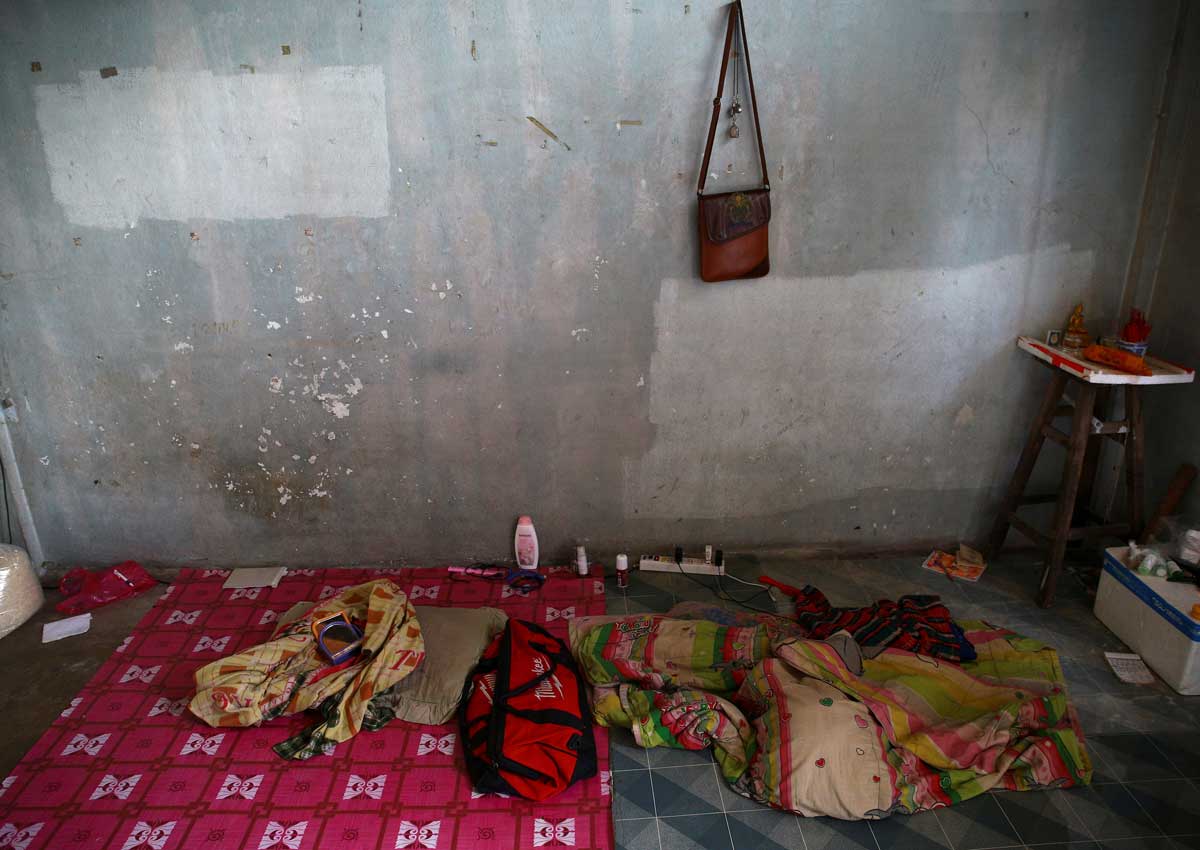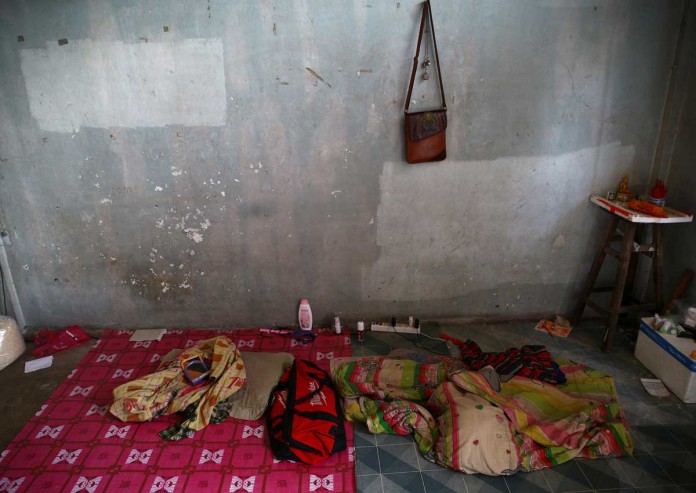SAMUT SONGKHRAM, Thailand – After the birth of her second son six months ago, Narinthip Pommarin stopped work to focus on her boys but soon found her husband’s sporadic US$12-a-day(S$16) roofing jobs could not cover their needs.
They were forced to borrow money for the rent on their tiny, airless room in a rowhouse behind a car wash in Samut Songkhram province, southwest of Bangkok, and were struggling to repay the debt.
Then a friend suggested Narinthip sign her baby Ang Bao up for Thailand’s new child support grant providing 400 baht (S$16) a month. “It’s not a lot, but it helps,” Narinthip said, sitting in the trash-strewn alley outside her home, tugging a rope to rock Ang Bao to sleep in a hammock.
“We save it, we have not used any of it yet, but at least when we do not have work, we can rely on this amount to buy milk and food.”
Thailand launched its child support grant a year ago to help tens of thousands of its poorest children get a better start in life.
The initiative comes amid concerns that a lack of proper nutrition and early years care has led to Thailand’s children having lower IQs than the global average which could have longterm repercussions for the country.
UN children’s agency UNICEF, which spent seven years helping the government develop the programme, hopes other countries in the region will follow suit.
Research shows that the first few years of a child’s life are crucial for mental and cognitive development.
Investing in the early years leads to healthier children who do better at school and have higher earning potential as adults – which helps break entrenched cycles of poverty, experts say.
“It is during the (first) six years that investment in a child’s development is most critical and yields the highest long-term returns – not only for the individual child, but for society as a whole,” said UNICEF representative for Thailand Thomas Davin.
Earlier this year Thailand extended the grant until a child’s third birthday, from the original plan for a year of support, and this month bumped up the monthly amount to 600 baht.
“In the past, Thailand did not have any programme to care for young children,” said Maitri Inthusut, permanent secretary of Thailand’s Ministry for Social Development and Human Security.
“The child support grant is a way to look after children … to build a strong foundation for our country in the long term.”
HELPING HAND Families with a monthly salary of less than 3,000 baht per adult are eligible for the grant.
Among its 65 million people, Thailand estimated 128,000 of the 710,000 babies born each year would qualify for the grant.
So far 154,000 have registered, Maitri said, meaning the government has underestimated the number living in poverty.
The grant has also opened a crucial channel of communication between families in need and local authorities, increasing access to social services.
“The government is directly reaching its hand out to help. This keeps (families) in close contact with the local government (services),” Maitri said.
Statistics from the programme are sobering.
Among the mothers of the registered babies, 46 per cent are unemployed, 23 per cent are under 20 years old, 40 per cent are single mothers, and 10 per cent lack secure housing, Maitri said.
For 40-year-old Saipiroon Poonsawat, the main carer for her baby nephew who has severe developmental problems, registration has linked her to social workers and much-needed assistance.
Eleven people live in her leaky, ramshackle hut, including seven children and her pregnant daughter-in-law.
Soon there will be a twelfth mouth to feed. “Even now, we skip meals,” Saipiroon said, cradling her skeletal nephew, Porsche, his feeding tube sticking out from under his shirt.
During a visit, social workers brainstormed ways to tap into other funds for Porsche’s healthcare and infant formula, as well as tuition for Saipiroon’s 16-year-old son who had to quit school to save money.
Thailand, which launched its grant after a visit to see South Africa’s child support programme, will share its experiences at a meeting in Kuala Lumpur next month of regional ministers and officials, organised by UNICEF and the Malaysian government.
Cambodia and Bangladesh are already planning to visit Thailand with a view to setting up similar child support grants, UNICEF’s Davin said.






